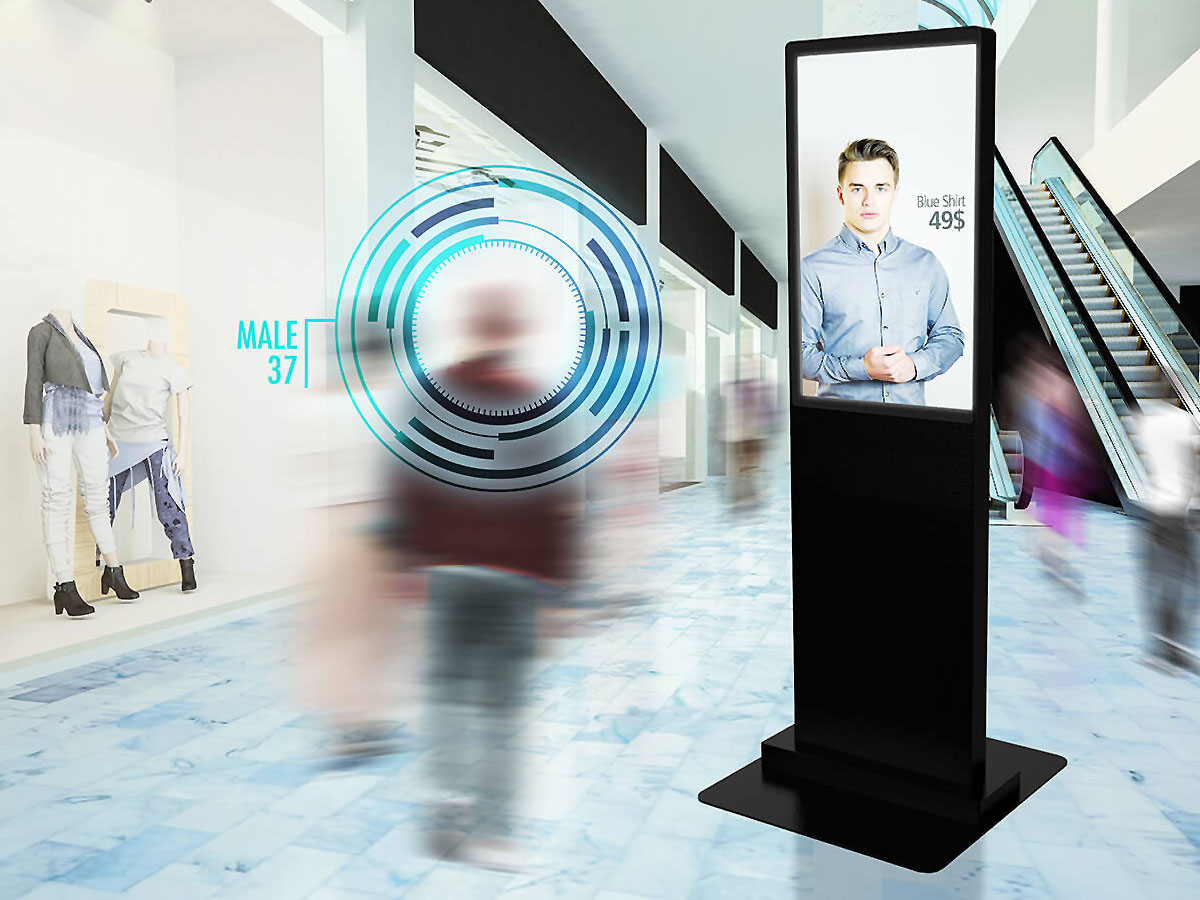In today’s digital age, personalization has become a key strategy for engaging audiences and enhancing user experiences. This holds true for digital signage as well, where the ability to deliver relevant and tailored content to viewers can significantly impact engagement and effectiveness. With the advent of artificial intelligence (AI) and machine learning (ML) technologies, personalizing digital signage content has become more accessible and efficient than ever before.
- Data-driven Insights:
 AI and ML algorithms can analyze Big Data (bulk quantity of data) collected from various sources, including customer demographics, preferences, behaviors, and real-time interactions with digital signage displays. By processing this data, AI can generate valuable insights into audience preferences and trends, enabling organizations to create more targeted and relevant content.
AI and ML algorithms can analyze Big Data (bulk quantity of data) collected from various sources, including customer demographics, preferences, behaviors, and real-time interactions with digital signage displays. By processing this data, AI can generate valuable insights into audience preferences and trends, enabling organizations to create more targeted and relevant content.
- Dynamic Content Optimization:
With AI-powered dynamic content optimization, digital signage can adapt and customize content in real-time based on audience demographics, environmental factors, and contextual cues. For example, digital displays can adjust content based on the time of day, weather conditions, or even the viewer’s proximity to the screen, ensuring that each viewer receives a personalized experience.
- Behavioral Targeting:
AI algorithms can analyze user behavior patterns and predict future actions, allowing digital signage to deliver content tailored to individual preferences and interests. By tracking viewer interactions with digital displays, such as dwell time, click-through rates, and content preferences, AI can optimize content delivery to maximize engagement and conversion rates.
- Contextual Relevance:
ML algorithms can analyze contextual factors such as location, audience demographics, and environmental conditions to determine the most relevant content to display on digital signage. For example, digital displays in a retail store can showcase product recommendations based on the time of day, store traffic, and customer demographics, enhancing the shopping experience and driving sales.
- A/B Testing and Optimization:
AI-powered A/B testing enables organizations to experiment with different content variations and measure their impact on audience engagement and conversion metrics. By continuously testing and refining content based on AI-generated insights, organizations can optimize digital signage campaigns for maximum effectiveness and ROI.
- Predictive Content Recommendations:
AI algorithms can predict which content is most likely to resonate with individual viewers based on their past interactions and preferences. By leveraging historical data and machine learning models, digital signage can deliver personalized content recommendations that are tailored to each viewer’s unique interests and preferences, increasing engagement and satisfaction.
- Privacy and Compliance:
While personalizing digital signage content offers many benefits, it’s essential to prioritize user privacy and comply with data protection regulations such as GDPR and CCPA. Organizations must implement robust data security measures and obtain explicit consent from users before collecting and using their personal data for personalization purposes.
In summary, harnessing AI and machine learning technologies enables organizations to personalize digital signage content effectively, delivering tailored experiences that engage audiences and drive desired outcomes. By leveraging data-driven insights, dynamic content optimization, behavioral targeting, contextual relevance, A/B testing, predictive recommendations, and ensuring privacy and compliance, organizations can unlock the full potential of digital signage personalization and create impactful user experiences.
Check out how Digital Signage Solutions are changing the dynamics of modern world businesses here.

